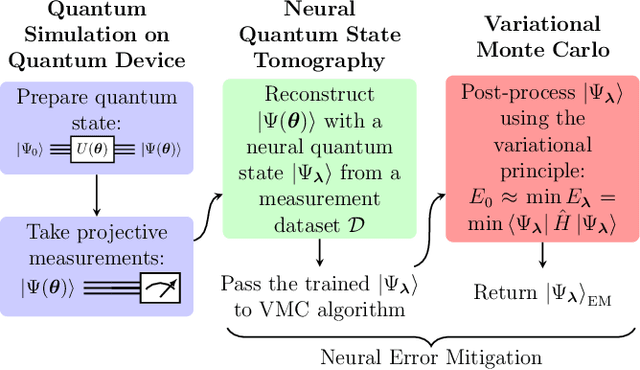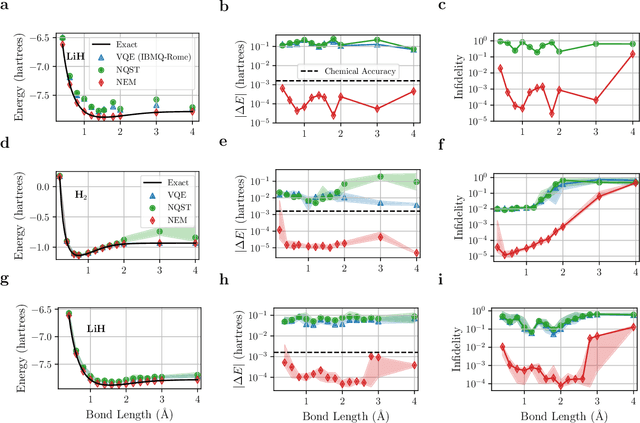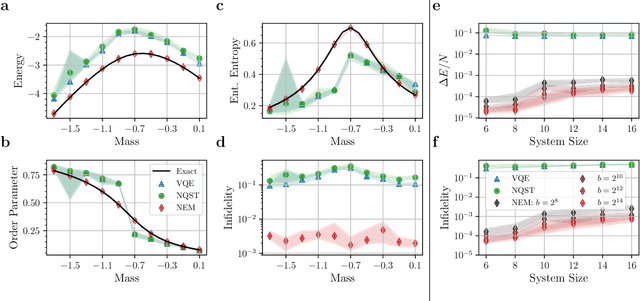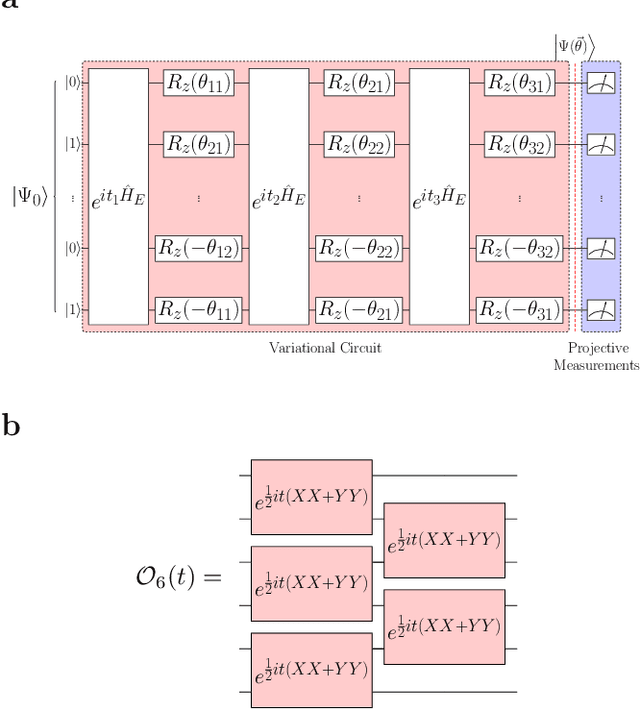Neural Error Mitigation of Near-Term Quantum Simulations
Paper and Code
May 17, 2021



One of the promising applications of early quantum computers is the simulation of quantum systems. Variational methods for near-term quantum computers, such as the variational quantum eigensolver (VQE), are a promising approach to finding ground states of quantum systems relevant in physics, chemistry, and materials science. These approaches, however, are constrained by the effects of noise as well as the limited quantum resources of near-term quantum hardware, motivating the need for quantum error mitigation techniques to reduce the effects of noise. Here we introduce $\textit{neural error mitigation}$, a novel method that uses neural networks to improve estimates of ground states and ground-state observables obtained using VQE on near-term quantum computers. To demonstrate our method's versatility, we apply neural error mitigation to finding the ground states of H$_2$ and LiH molecular Hamiltonians, as well as the lattice Schwinger model. Our results show that neural error mitigation improves the numerical and experimental VQE computation to yield low-energy errors, low infidelities, and accurate estimations of more-complex observables like order parameters and entanglement entropy, without requiring additional quantum resources. Additionally, neural error mitigation is agnostic to both the quantum hardware and the particular noise channel, making it a versatile tool for quantum simulation. Applying quantum many-body machine learning techniques to error mitigation, our method is a promising strategy for extending the reach of near-term quantum computers to solve complex quantum simulation problems.
 Add to Chrome
Add to Chrome Add to Firefox
Add to Firefox Add to Edge
Add to Edge